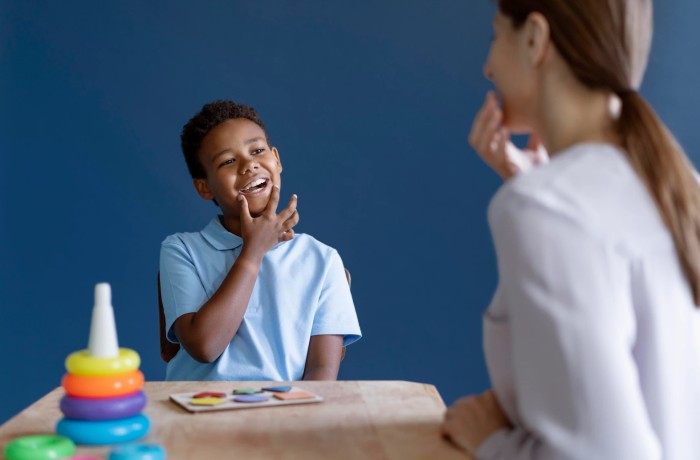HEALTH
Mental Health Activities for Kids: Why Is It So Important?
15 September 2022
Just like adults, kids experience stressors too. As they grow up and become busier, it can be overwhelming to juggle academic workload, extra-curricular activities, and social conflicts with peers and family members.

So, how do you help kids manage these struggles and develop positive habits to deal with everyday life?
Understand the Importance of Taking Care of Your Children’s Mental Health
According to 2020 research, mental health-related emergency room visits in the U.S. increased by 24% for kids aged 5 to 11 and a whopping 31% for kids aged 12 to 17. ADHD, anxiety, and depression are the most common mental health issues.
These numbers can be daunting, especially for parents, guardians, and teachers who want the best for their kids. Such issues must be faced head-on for the kids’ well-being now and in the future.
The good news is that there are many ways to help these little humans battle their mental health concerns and emerge victorious. You can guide them in addressing and managing complex feelings and emotions by engaging them in activities that foster good mental health.
Why Is Good Mental Health Important in Children?
Good mental health in children is the foundation for a fulfilling and balanced life. It affects how they think, feel, and act, shaping their ability to learn, build relationships, and face life’s challenges with resilience. When kids develop healthy emotional habits early on, they’re more likely to grow into confident, empathetic adults who can manage stress and adversity. That’s why good mental health is important in children—it equips them with essential tools to thrive at home, in school, and beyond. Prioritizing mental wellness from an early age helps ensure a brighter, healthier future.
What’s the Best Mental Health Activity for Kids?
Finding activities that will boost your child’s mental and emotional health and resilience can help them navigate life’s daily stressors, explore their strengths and values, and develop positive coping mechanisms.
Physical Activities
“On average, young people who exercise more have lower levels of depression, stress and psychological distress, and higher levels of positive self-image, life satisfaction, and psychological well-being.” — American Psychological Association
Regular physical activity—even something as basic as a walk around the neighborhood—can significantly impact your kid’s mental health and well-being. A 2020 study showed that exercise had an enormous effect on depression in kids.
Body movement releases feel-good endorphins and other natural brain chemicals. It also decreases the stress hormone cortisol, which may help ease depression, stress, and anxiety.
Music Therapy
Music is a calming distraction that can boost tranquility and relaxation in children. It can also lower their blood pressure and heart rate, help them slow down their thoughts, feel their feelings, and make it easier for them to talk about what’s troubling them.
The best thing is that music is easily accessible on streaming platforms like Spotify and YouTube. So you can easily find the most relaxing tunes for your child, put them in a playlist, and press play to help them rest and relax.
Journal Writing
Kids can find it challenging to put their feelings into words. If your child is having difficulty expressing their emotions verbally, consider introducing them to journaling.
Journaling for mental health helps kids express their feelings, track the ups and downs of their moods, and recognize their triggers. Regular reflection can help them take active steps to relieve stress and ask for help dealing with their symptoms.
Daily Gratitude
Gratitude changes you and your brain. For this exercise, you can ask your kid to list three things they are grateful for. You can also make gratitude jars they can fill with notes of thanks.
Doing this simple thing every day will give kids the time to reflect and tap into their thoughts with an optimistic and grateful outlook, deal with negative emotions, and boost dopamine and serotonin to improve their mood.
Breathing Exercises
Breathing exercises can relieve feelings of anxiety and worry, which can help kids calm down and relax. It taps into the brain-body connection and keeps them rooted in the present, which can reduce the tension in their bodies.
It can improve focus, attention, and self-control. It also lowers blood pressure, decreases levels of stress, anxiety, depression, and disruptive behavior, and improves their overall quality of life. Reverting to breathing exercises to deal with stress can enhance both physical and mental health in the long term.
Create a Kinder World With IMANA
These mental health activities for elementary students will create an environment where your children feel safe to talk about and manage their feelings. It also helps them discover their interests, take steps to sharpen their skills, and reflect, recharge, and reset their emotions—all of which can improve their lifelong well-being.
Take the time to build more mental health awareness with IMANA to help affected individuals get the treatment they need to thrive and create a kinder, more compassionate world for your kids to grow and thrive.